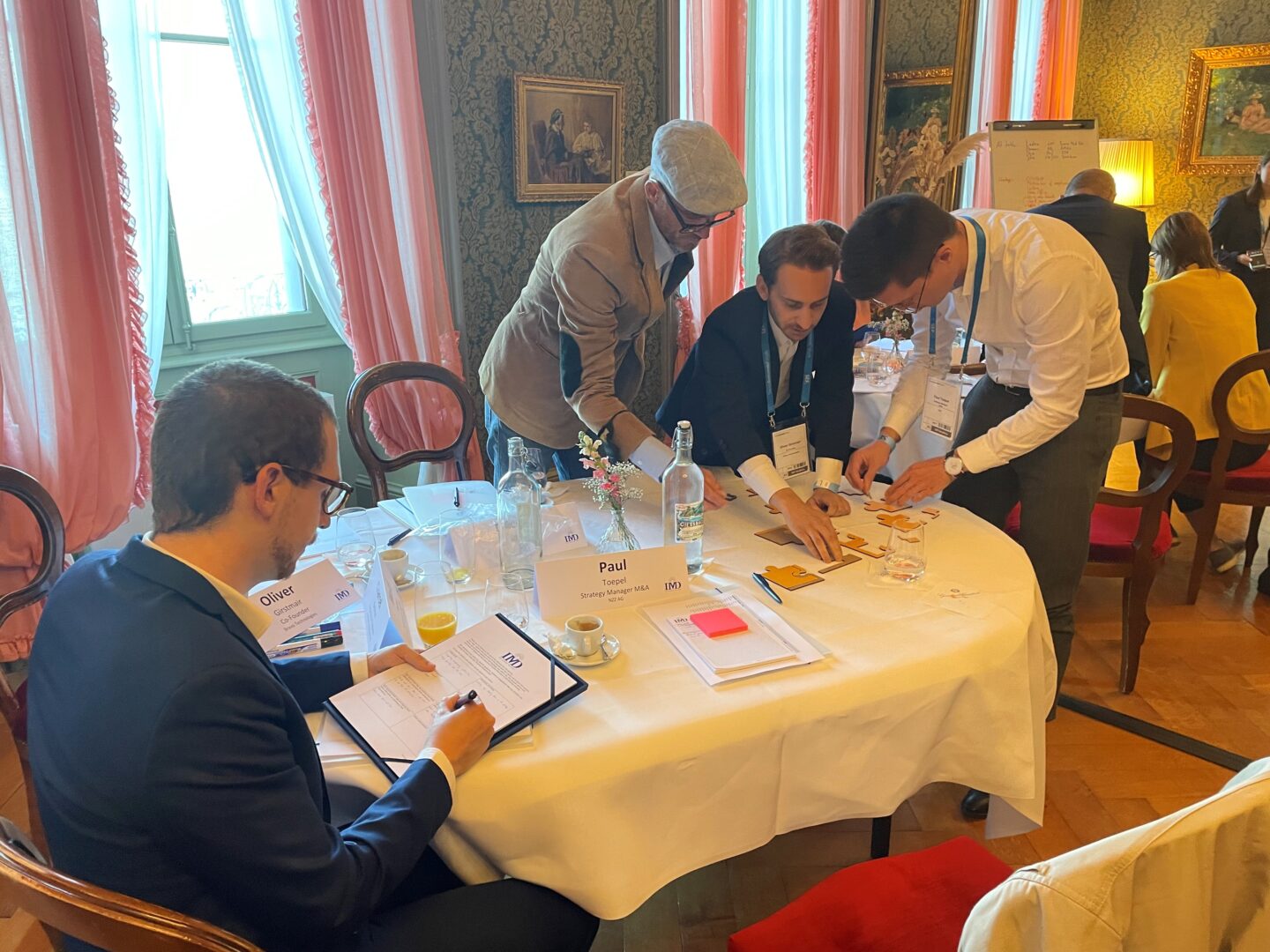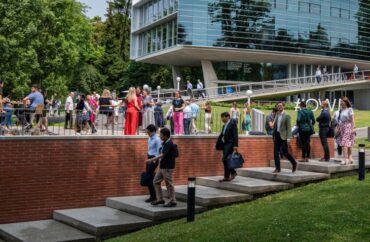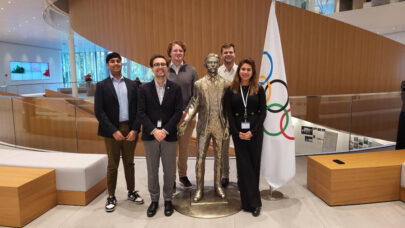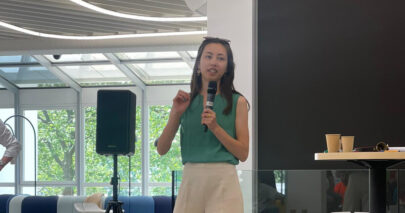More than 20 young executives gathered at the Grandhotel Giessbach overlooking the pristine waters of Lake Brienz to exchange views and reflect on their leadership styles as part of a one-day workshop hosted by IMD in collaboration with the Swiss Economic Forum (SEF).
“What is certain is that nothing is a given,” said Tom Rieder, Head of Marketing and Communications at SEF, as he kicked off the second annual gathering of the SEF Academy, which is composed of business leaders aged between 28 and 40. “Today’s leaders need passion, knowledge and the right tools on how to navigate in uncertain times.”
Away from the daily video calls and demands of their roles, the executives were able to zoom out on the challenges thrown up by the pandemic. Participants spoke of the struggle to connect with colleagues and keep them motivated and focused while working from home, as well as problems with prioritization and time management as they juggled professional commitments with family life. Several mentioned a “war on talent”, citing problems recruiting and retaining skilled staff.
Maria Schmitt, EMBA Cohort Director at IMD, said the aim of the workshop was to get leaders to reflect on the assumptions they are working with as they design the new normal and question whether they are trying to solve new leadership challenges with old tools.
“As we see our context really shifting, it is important to catch ourselves,” said Schmitt. “What are the assumptions we are making, are we considering the new reality or are we basing it on our pre-Covid experience?”
To test this out, participants were challenged to assemble a puzzle under timed conditions. But there was a catch: The pieces didn’t fit together in a conventional way. To succeed, they were forced to abandon traditional beliefs about puzzle solving, such as starting with the edges, matching colours, or even having all the pieces the same way up.
Expanding and balancing different leadership approaches
The young leaders, who needed to have budgetary and leadership experience to qualify for the program, ranged from executives at global companies, including engineering group ABB and insurer Allianz Suisse, to CEOs and CFOs of start-ups and SMEs.
After spending a year at home communicating with her team via web meetings, Barbara Peutler, Head of Customers and Analytics at Allianz Suisse, relished the chance to exchange views with fellow leaders working in sectors as diverse as life sciences, the media and software engineering.
“That’s a real win because usually you are exchanging among your peer group in the same industry. Now you get really a different perspective, different ideas, also different tools,” she said.
Co-facilitating with Schmitt was Sophie Hazi, IMD’s EMBA Cohort Lead. The pair guided participants through a workshop in which they observed themselves in action, dissected different leadership styles and came up with a plan of action to alter a micro behaviour to make them become more effective in their roles.
Participants gained insights into how to adapt their leadership to an increasingly volatile and uncertain world, which requires those in charge to expand and balance different leadership approaches to their context and organization’s needs.
If you are leading a team of engineers, who may have more expertise than you, it may be important to be more of a listener than a teller, said Schmitt.
This resonated with Michael Schranz, Chief Experience Officer at Apps With Love AG, a digital product developer.
“Leadership is not something universal. There are many different concepts and something you need to adapt depending on the people, the culture, the places where you are,” he said.
Participants also examined how the pandemic might have altered the way we communicate. In one session, the young leaders were blindfolded and given various puzzle shapes. The aim was to work out the colour and shape of two missing pieces without using one of their crucial senses: sight. The executives likened the exercise to the challenge of communicating with team members via video calls when it is hard to gauge colleagues’ feelings.
One learning was to not assume that everyone has the same understanding of the information received and to try to build in more time and encourage questions when communicating virtually. Another take-away shared by Christian Ebneter, National Sales Manager at ABB Switzerland was to create a playful atmosphere in virtual meetings to allow people to relax and enjoy the working exchange as they did during the workshop. This can be achieved by starting meetings with check-in moments with fun questions (some ideas) rather than diving straight into the task at hand, said Schmitt.
Her top tip, however, was to be humble. “Listen, ask questions, be curious,” she said.




